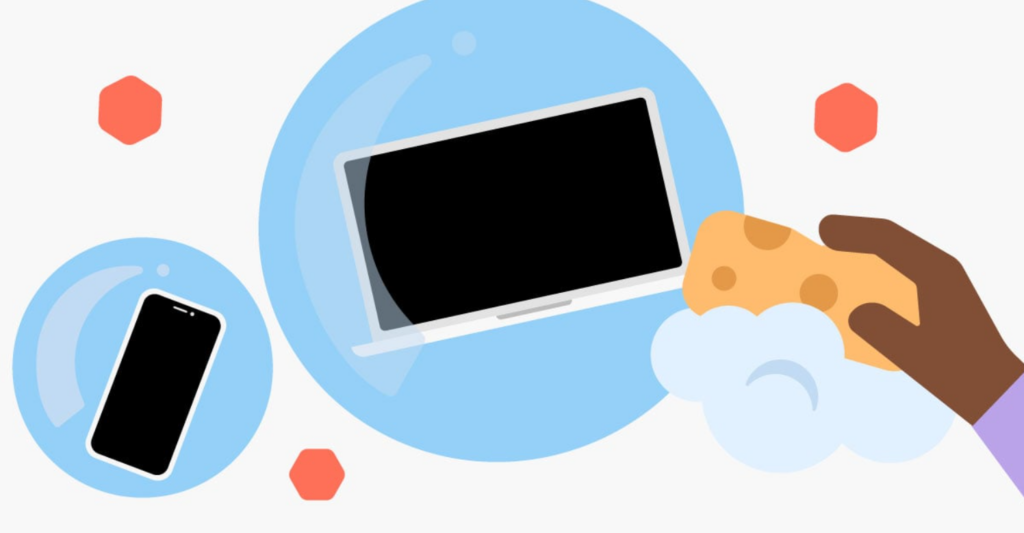Are Cookies Affected by a VPN and How to Delete Them 2025
Because virtual private networks (VPNs) are unable to delete cookies that have already been saved on your computer, the websites from which those cookies originated can still identify you unless you erase the cookies from your browser. Virtual private networks (VPNs) are not capable of making you entirely anonymous while you are online.
We Recommend Express VPN as we have tested this Cookies and it does its job perfectly. You can take a free trial from the below link only
A Virtual Private Network (VPN) is a technology that creates a secure and encrypted connection between a user’s device and the internet. When a user connects to a VPN, their internet traffic is routed through the VPN server, which changes the user’s IP address and location.
Are Cookies Affected by a VPN?

Cookies can be affected by a VPN in a few different ways, depending on how the VPN is configured and how cookies are implemented by different websites. Here are a few scenarios:
1. VPNs can prevent cookies from being set
In some cases, a VPN can prevent websites from setting cookies on a user’s device. This can happen if the VPN is configured to block certain types of traffic, such as third-party cookies or tracking scripts. Some VPNs have built-in ad blockers or tracking blockers that can prevent certain cookies from being set.
In this scenario, the user may experience some issues with websites that require cookies to function properly. For example, if a website uses cookies to remember a user’s login credentials, the user may be forced to manually enter their username and password every time they visit the site. However, in most cases, this can be easily remedied by adding exceptions for certain websites or disabling certain cookie-blocking features in the VPN settings.
2. VPNs can obscure cookies from websites
In other cases, a VPN can obscure the cookies that websites set on a user’s device. This can happen if the VPN changes the user’s IP address and location, which can make it difficult for websites to associate a particular set of cookies with a specific user.
In this scenario, the user may experience some issues with websites that use cookies for targeted advertising or personalized content. For example, a website may show ads or content that are not relevant to the user’s interests because the website is not able to properly track the user’s browsing history and preferences. However, this can also be remedied by disabling certain privacy features in the VPN settings or using a different VPN that does not obscure cookies.
3. VPNs do not delete existing cookies
It’s important to note that a VPN does not automatically delete existing cookies on a user’s device. When a user connects to a VPN, the cookies that were set before the VPN connection will still be present on the device, and they may be used by websites that the user visits.
How to Delete Cookies

If you want to delete cookies from your device, there are a few different methods you can use depending on the browser you’re using. Here are some common methods:
1. Clear cookies in your browser settings
Most browsers allow you to clear cookies directly from the browser settings.
Google Chrome
- Click on the three dot in the top right.
- Click on “Settings.”
- Go down and on Privacy and security.
- Click on “Cookies and other site data.”
- Click See all cookies and site data.
- Click on “Remove all” or select specific cookies to remove.
Mozilla Firefox
- Click on the three bar in the top right corner.
- Click on Options
- Click on “Privacy & Security.”
- Go to the Cookies and Site Data section!
- Click on Manage Data.
- Select the box-next to the Cookies and Site Data.
- Click on “Remove Selected” to delete specific cookies or click on “Remove All” to delete all cookies.
Apple Safari
- Click Safari in the top menu bar.
- Click on “Preferences.”
- Click on the “Privacy” tab.
- Click on “Manage Website Data.”
- Select the cookies you want to delete or click on “Remove All.”
2. Use a third-party cookie cleaning tool
There are many third-party tools available that can help you clean cookies from your device. These tools are often more comprehensive than the built-in options in your browser, and they can help you clean up other types of data as well. Here are a few popular options:
CCleaner
CCleaner is a popular system optimization tool that can help you clean up cookies, cache, and other types of data. It’s available for both Windows & Macbook.
- Download and install CCleaner.
- Launch CCleaner and click on the “Custom Clean” tab.
- Select the cookies you want to delete or click on “Analyze” to scan your system for cookies.
- Click on Run Cleaner to delete the selected cookies you chose.
Malwarebytes AdwCleaner
AdwCleaner is a free tool that can help you remove adware, spyware, and other types of unwanted software from your system. It can also clean up cookies and other browser data.
- Download and install AdwCleaner.
- Launch AdwCleaner and click on “Scan.”
- Wait for AdwCleaner to scan your system for unwanted software and browser data.
- Select the cookies you want to delete or click on “Clean & Repair” to remove all unwanted data.
3. Use your operating system’s built-in cleaning tool
Both Windows and Mac have built-in tools that can help you clean up cookies and other types of data. Here’s how to use them:
Windows
- Click on the Windows Start menu.
- Type Disk Cleanup and click on the application.
- Select the drive,which you want to clean.
- Wait for Disk Cleanup to scan your drive for files to clean up.
- Select the types of files you want to delete, including “Cookies.”
- Click – OK,then delete.
Mac
- Click on the Apple menu.
- Click on “About This Mac.”
- Click on “Storage.”
- Click on “Manage.”
- Click on “Review Files.”
- Select the types of files you want to delete, including “Cookies.”
- Click on “Delete” to delete the selected files.
Conclusion
Cookies can be affected by a VPN in a few different ways, depending on how the VPN is configured and how cookies are implemented by different websites. VPNs can prevent cookies from being set, obscure cookies from websites, but do not automatically delete existing cookies.
If you want to delete cookies, there are a few different methods you can use, including clearing cookies in your browser settings, using a third-party cookie cleaning tool, or using your operating system’s built-in cleaning tool. Regardless of the method you choose, it’s important to regularly clean up your cookies and other types of data to protect your privacy and improve your browsing experience.
I'm a technology cyber expert and VPN expert. I love to stay up-to-date on the latest tech trends and explore new ways to use technology to improve my life. I also enjoy writing about these topics.
Peace ✌️


